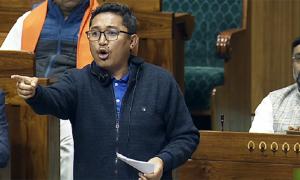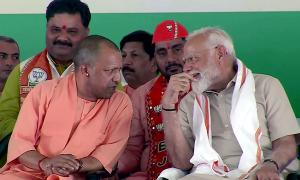As consumerism takes over, so does the increased usage of credit card usage. And banks have realised this and are aggressively touting them to consumers. They are projected as a necessary supplement to our lifestyle and flashed with zany lines like "Why wait when you can buy now?"
However, remember that credit cards are basically variants of unsecured loans advanced by banks. Like all unsecured loans, they too come bundled with high interest rates and a lot of fine print.
Here are a few things you must know about such loans.
Fifty-day interest free period: True but only applicable if you are able to time your purchase to perfection. That is, you need to make the purchase on the very first day of your billing cycle.
For instance, presume that your cycle begins on the 1st of this month and your due date for payment is on the 20th of the following month. Now if you make a purchase on the 1st of this month and pay up on the 20th of next month, then the above statement is true. Any other combination does not give you the same advantage.
Minimum payment: Cards allow you to repay amounts as low as 5 per cent of your outstanding. However, remember that the unpaid amount not only attracts heavy interest (around 36 per cent per annum) but the rate of interest rises further (to over 42 per cent) depending on your payment patterns.
Moreover, once the rolling over begins, your free credit period ceases. In other words, all fresh purchases made by you even in the next billing cycle, will be treated as unpaid amounts from day one and will attract interest.
Late payment charges: Miss payments and you are in big trouble. There is a slab-wise late payment fee depending on the amount of the bill.
Also, a bounced cheque could cost an additional Rs 250 to your wallet.
For the traveller: In case you are travelling, please pay up your bill amount before you leave the city. In case you drop your cheque in any drop box outside your city, you will be charged a processing fee of 1 per cent of the bill amount, subject to a minimum fee of Rs 100. Some banks don't even accept outstation cheques.
Forex payment: While cards offer you the convenience of carrying out foreign exchange transactions, you are charged a mark-up of 3 per cent for this privilege.
Crossing the limit: You might be happily surprised when your bank honours a payment that crosses even you credit limit. But then, there is a catch, you will be charged 2.5 per cent for the amount that is in excess of the limit. Yes, your reputation is protected in front of the merchant establishment. But it comes at a price.
Drafting dues: The facility of dialling in and ordering a demand draft against your credit limit is available. But it comes for a pretty packet as well, another 2.5 per cent of the draft value, subject to a minimum of Rs 300.
Picture imperfect: Beware of additional frills such as "image cards". Banks charge an amount of Rs 150 or so for affixing your image on the card. However, this does not apply to "photo cards", which are free.
Nothing is free: You might be tempted to transfer from one bank to another under zero per cent balance transfers. However, remember that there are "handling charges of 2 per cent" in the fine print.
Of course, these are some general fine print and can vary from bank to bank. But then here is something that is common to all, since May 11, 2007, most of the above charges will also attract a service tax of 12.36 per cent.
Remember to browse through the "Schedule of Charges" on the bank's website periodically to be aware of the new inclusions. More importantly, read your credit card statement very carefully every month.
The author is vice president, Parag Parikh Financial Advisory Services.








More from rediff